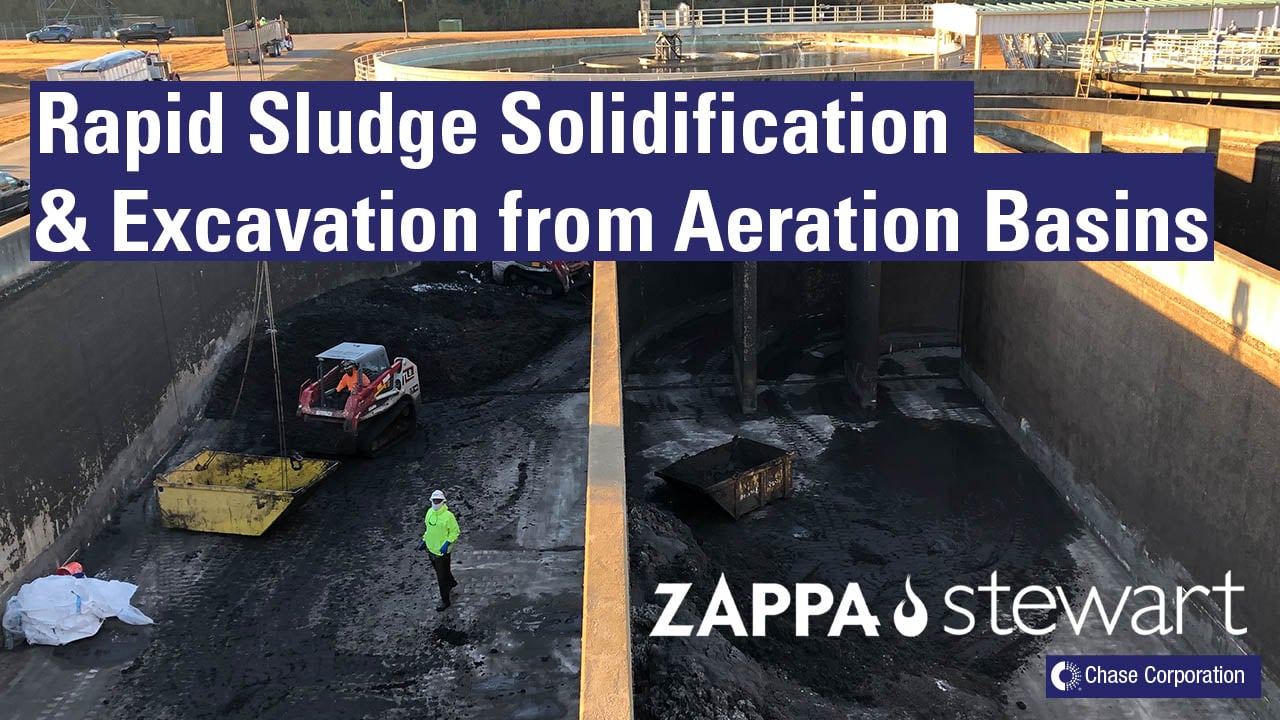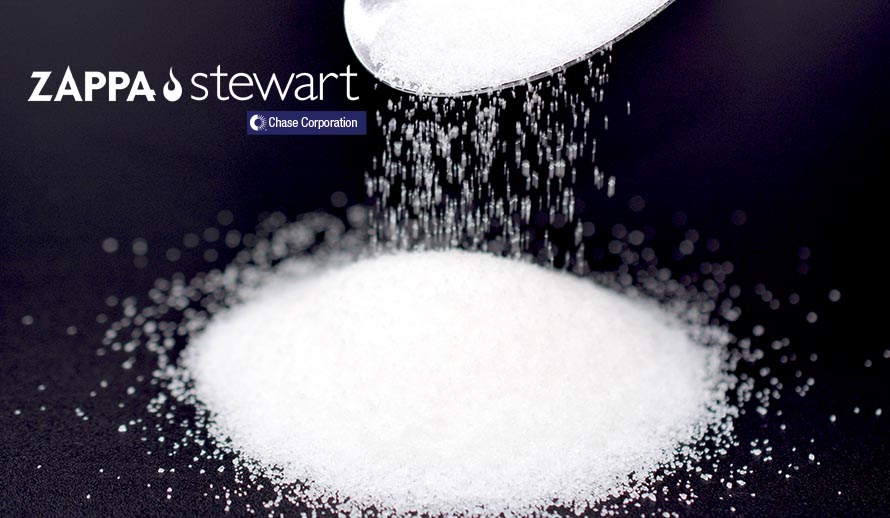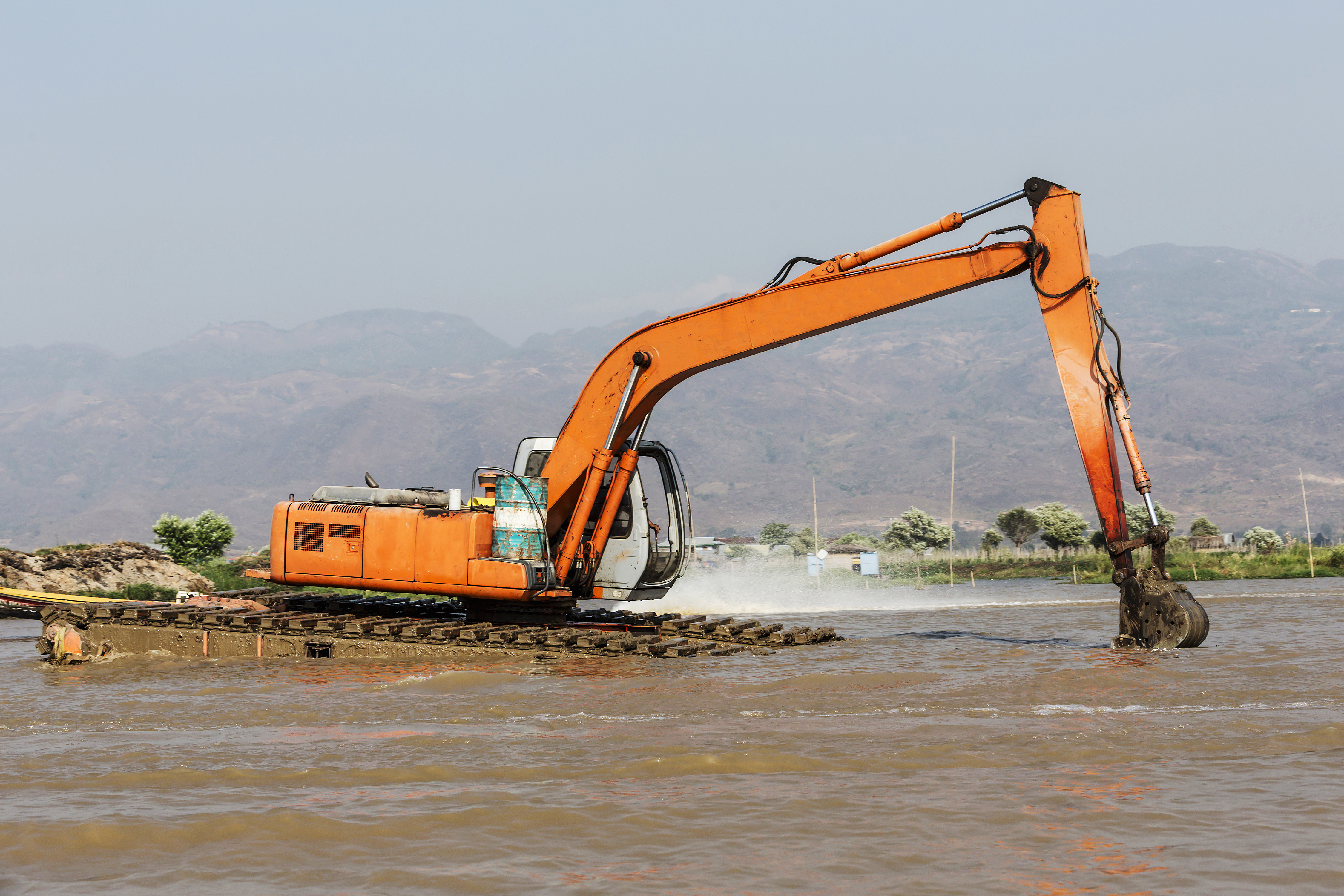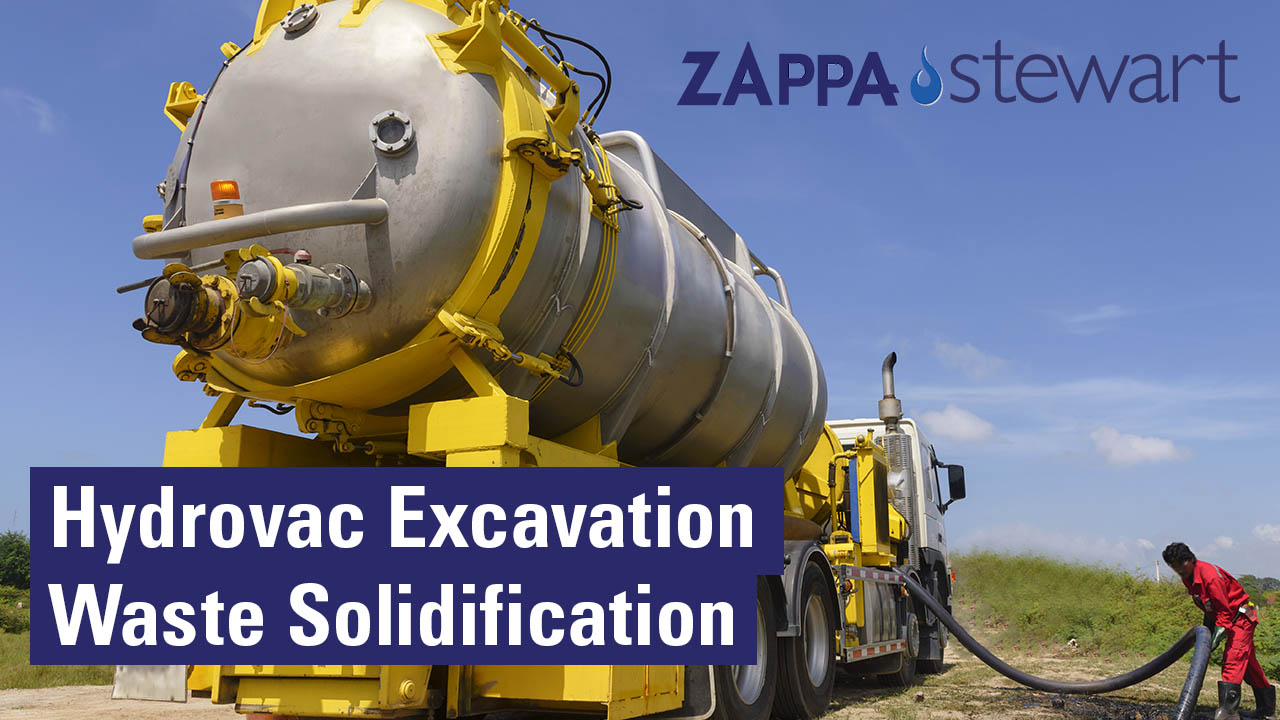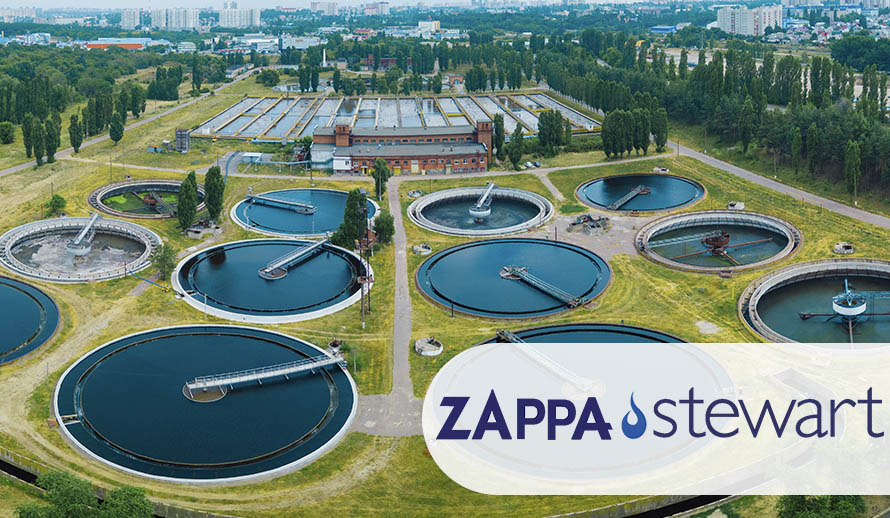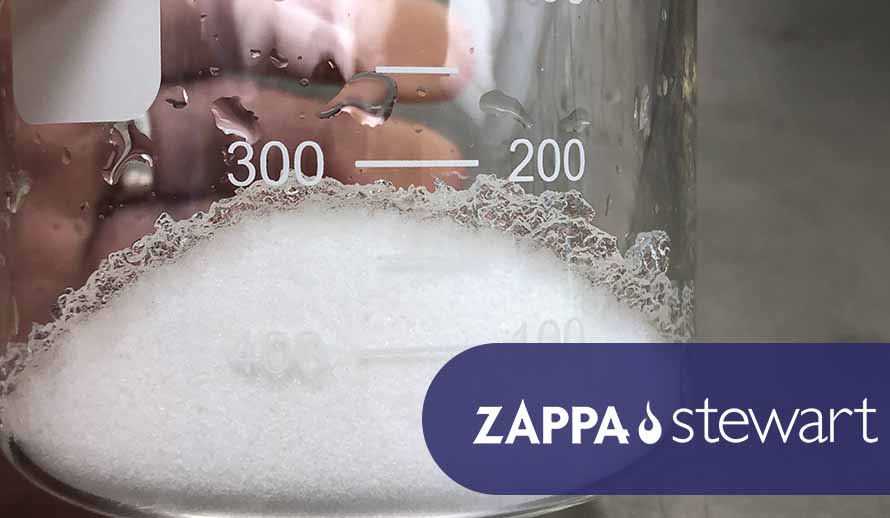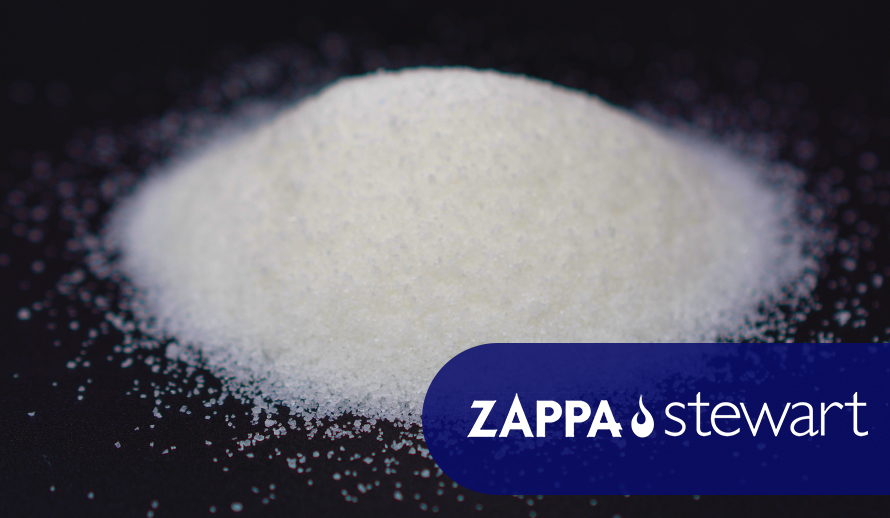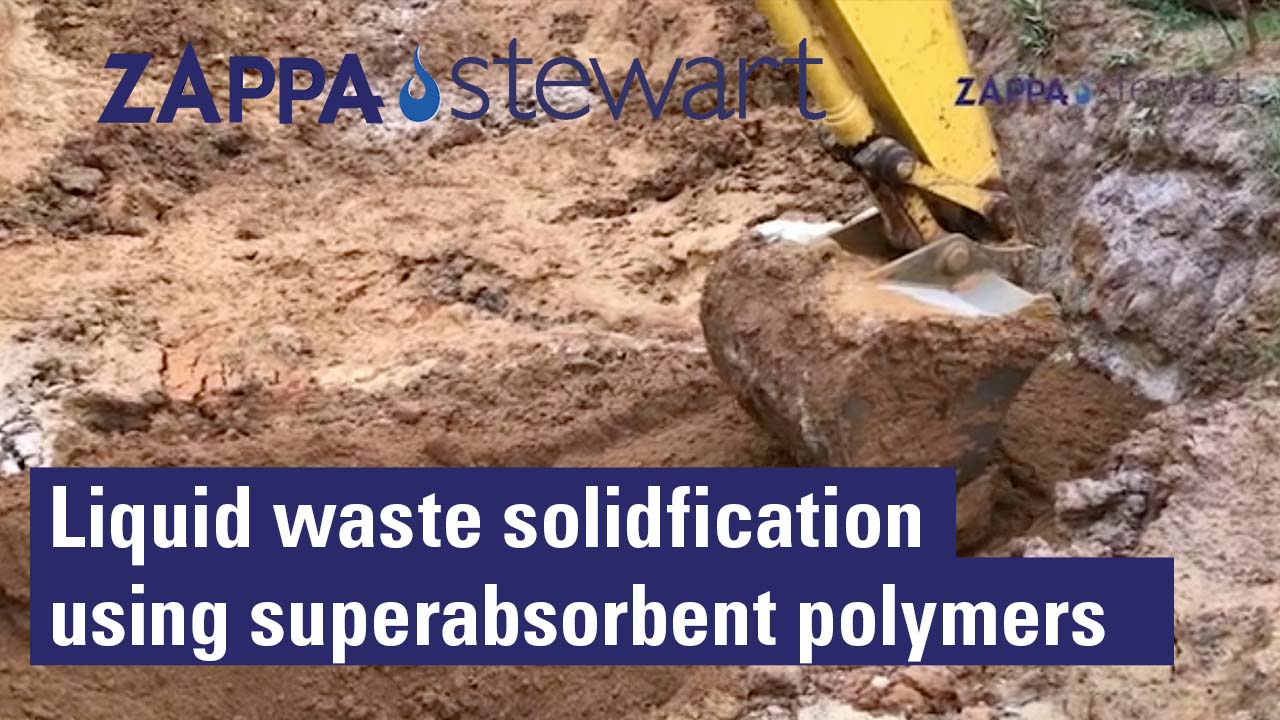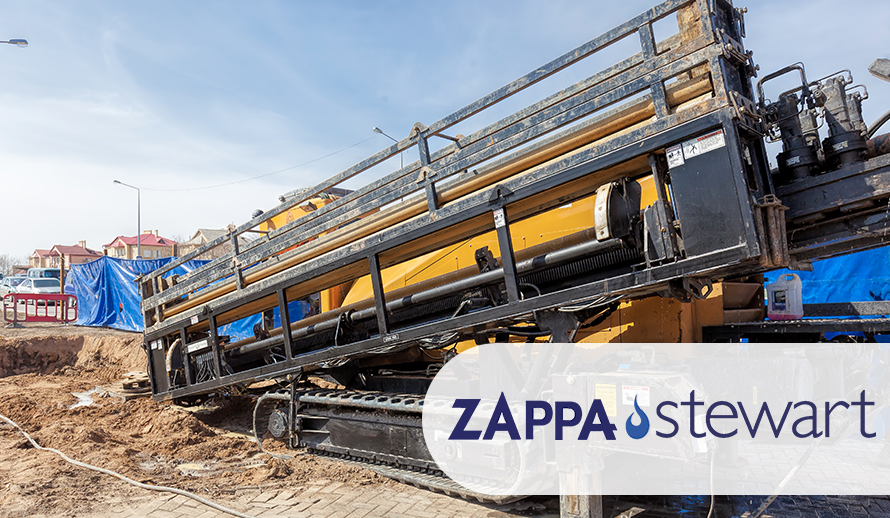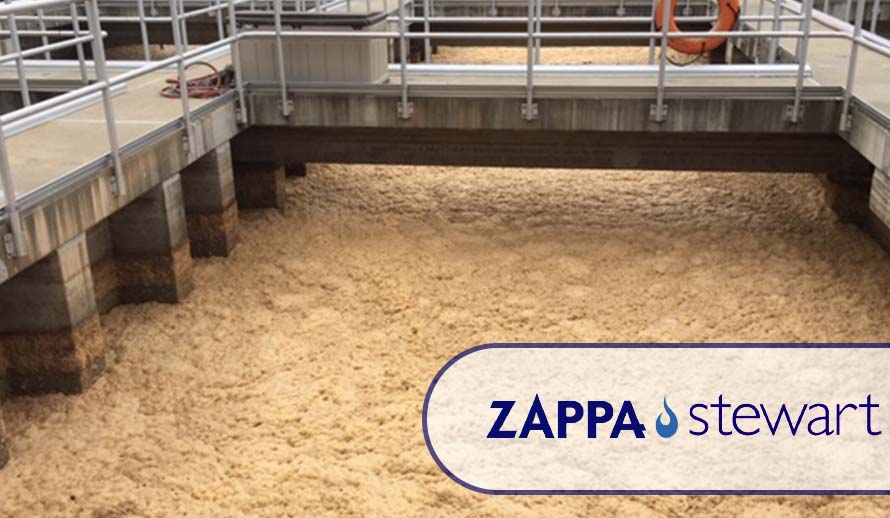When a major U.S.-based municipal wastewater utility contractor needed a rapid, money-saving, and efficient solution for removing 1,000+ tons of saturated sludge from an aeration basin, they turned to ZapZorb superabsorbent polymers (SAPs).
Topics: Wastewater Treatment Sludge, Sludge removal, Rapid sludge solification, Landfill requirements, EPA’s paint filter test, wastewater utility
When people refer to superabsorbent polymer (SAP), they often are referring to sodium polyacrylate which is the absorbent commonly found in diapers and other sanitary hygiene products.
Sodium polyacrylate is produced globally by several major suppliers through the polymerization, or chain building, of acrylic acid neutralized with sodium forming a sodium salt.
Topics: superabsorbent polymers, Sodium polyacrylate superabsorbent polymers
Superabsorbent polymers (SAPs) are a key technology for safe, fast, and efficient stabilization of wet and saturated coal combustion residuals (CCR), a major waste management challenge for electric power utilities in the US. Traditional pozzolanic stabilization reagents, such as quicklime, lime kiln dust (LKD), and Portland cement, often perform inadequately with CCR material that is heavily layered, unusually difficult to dewater, or when operating in excessively wet weather conditions. However, the introduction of small dosage rates of SAPs (0.3%-1.0%), either as a standalone technology or as a component of a pozzolan blend, provides CCR management contractors a modern tool for reliable and predictable CCR drying.
Topics: superabsorbent polymers, CCR Stabilization, Coal Ash, wet and saturated coal combustion residuals (CCR)
Safe and accurate, hydro-excavation has become the most preferred method for digging, daylighting, and potholing in many industrial sectors in recent decades. While the benefits of hydro-excavation are undeniable, the process generates large volumes of mud and slurry waste that must be managed, in order to avoid environmental risks. Superabsorbent polymers (SAP) offer an easy, safe, and efficient tool for eliminating free liquid in hydro-excavation waste fluid so that the waste can pass the EPA paint filter test, be transported and disposed in a Subtitle D landfill as solid waste.
Topics: Environmental Remediation, Hydroexcavation Trucks, Liquid Waste Management, superabsorbent polymers
Managing Costs of Liquid Waste Disposal
Superabsorbent polymers (SAPs) provide many financial and environmental benefits in the rapid solidification of liquid-bearing wastes and contaminated sediments. Environmental remediation professionals utilize SAPs for minimizing waste volume, excessive transportation and disposal expenses, and reagent handling and mixing costs. Furthermore, SAPs are not only safe for the environment, but prevent leaching of toxic waste into groundwater, surface water, and other sensitive natural resources.
Topics: SAP, superabsorbent polymers, Wastewater Treatment Sludge, SAP costs
Zappa Stewart supplies a wide range of SuperAbsorbent Polymers (SAPs). Most SAPs are surface cross linked (referred to as SXM) and are widely used in diapers and hygiene products. However, there are also non-surface cross linked SAP’s (often referred to as pre-surface crosslinked or PSXM for short) that have unique properties and are well suited for specific applications.
Topics: superabsorbent polymers, SAPs for consumer products, SXM, pre-surface crosslinked, Surface Cross Linking, PSXM, Sodium polyacrylate superabsorbent polymers, PSXM SAP technology
Superabsorbent polymer (SAP) technology has a wide range of uses in a multitude of industrial, consumer, and specialty markets. The average consumer encounters SAPs on a daily basis, often without realizing their presence. SAPs are used in baby diapers, absorbent pads for food packaging, in hot/cold gel packs, feminine hygiene products, cat litter and more. SAPs also play a role in solidifying and rendering liquids generated by medical procedures as non-"red bag waste." In addition to the consumer goods and medical markets, SAPs are compatible with a long list of construction and industrial process wastes.
Topics: Medical Waste Solidification, Liquid Waste Management, superabsorbent polymers, Wastewater Treatment Sludge, HDD Solidication
When a Southeastern US-based fiber optic and telecom contractor was faced with a persistent liquid waste management challenge, the contractor contacted Zappa-Stewart to conduct an on-site demonstration of solidification with ZapZorb superabsorbent polymers (SAPs).
Topics: Waste Solidification, SAP, Sawdust vs SAP, Liquid Waste Management, superabsorbent polymers, Wastewater Treatment Sludge
HDD technology has changed the landscape for the pipeline and utility infrastructure sectors, quite literally. Pipelines can now be installed under waterways, utilities can be installed without open cutting of highways and wetlands, and residential service connections can be installed without digging up lawns and driveways. But as with any technological innovation, HDD technology comes with its own set of new challenges. The large volumes of spent drilling mud, that are generated by HDD borings, require careful management, to prevent unnecessary costs and environmental risks. A rapidly increasing number of HDD contractors and owners choose to solidify spent drilling fluid on-site, with superabsorbent polymers (SAPs), to eliminate excessive waste hauling, disposal charges, and environmental liabilities.
Topics: Horizontal Drilling, Waste Solidification, Environmental Remediation, HDD Solidication
Industrial contractors utilize superabsorbent polymers (SAPs) in wastewater treatment, horizontal directional drilling (HDD), remediation, and other industrial sectors to simplify the solidification of challenging liquid waste streams. SAPs feature the highest absorbency of any solidification technology, allowing contractors to process more sludge with less reagent, minimizing the quantity of material mixed into the waste, time spent blending reagent, and the disposal weight of the solidified waste.
Topics: SAP vs Cement, superabsorbent polymers, SAP Applications, Wastewater Treatment Sludge, Sludge removal


